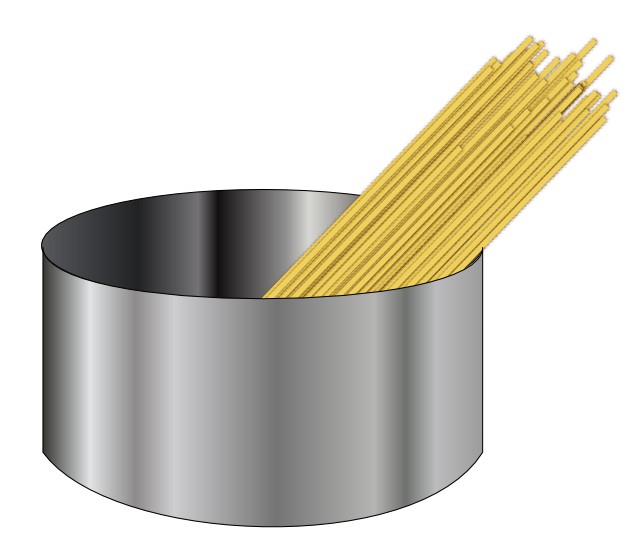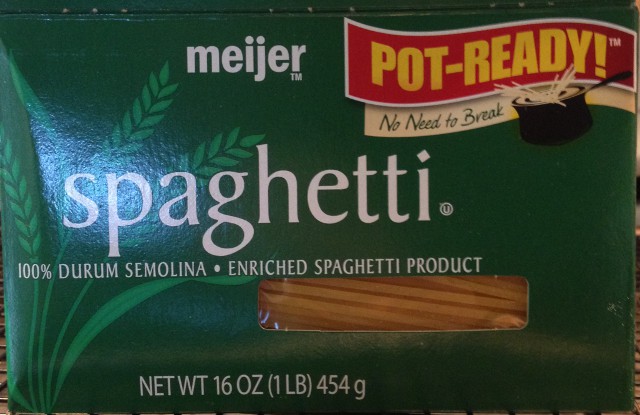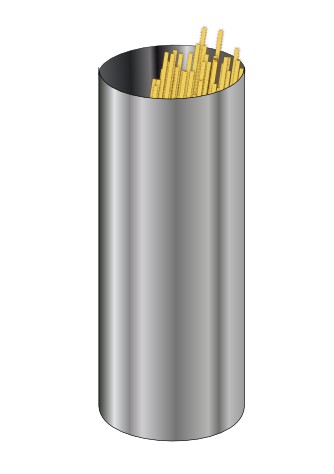The scene: I see Gamma is drinking a cup of something.
Me : Is that coffee?
Gamma : I don’t have coffee – I’m not a grandpa!
The scene: I have just returned from running.
Gamma, to me : You stink – you’re all sweaty.
Gamma, loudly : Everybody get your nose shields!
The scene: Everyone is buckled in the minivan and I’m driving.
Beta : I’m going to Dairy Queen! Who’s with me?
Picture it like he’s William Wallace.
The scene: We watched Disney’s The Aristocats the day before.
Delta : Why does everybody want to be a cat?
Me : Because a cat’s the only cat who knows where it’s at.
Delta : Do dogs know where they’re at?
Me : Not as well as cats do.
And sometimes not at all.
The scene: I catch Beta wearing boots inside the house.
Me : Don’t wear your boots in the house!
Beta : It’s okay then – they’re not mine.
Okay, don’t wear anyone’s boots in the house.
Delta : Why did the turkey cross the road?
Gamma : Because the chicken was on vacation.
Delta : No, because the tornado was going to blow him up!
King Solomon made 200 large shields of beaten gold, using 600 shekels of beaten gold on each large shield.
2 Chronicles 9:15
Posted in Conversations | 2 Comments »




Normally, making spaghetti involves breaking the noodles in half. If you don’t, it ends up looking like this:

Because the noodles are longer than the pot is wide.
But someone realized that there is no reason for all spaghetti noodles to be that long, since people usually break them for cooking or cut them for eating. So grocery stores are now selling these:

That’s right – pot-ready spaghetti.
It’s the same amount of spaghetti as usual, just twice as many noodles and half as long.
But that got be thinking – there must be another way to solve this problem. And there is!
It’s the spaghetti-ready pot.

Why do the noodles have to change? Why can’t the pot change?
Speak a parable to the rebellious house and say to them, ‘Thus says the Lord God, “Put on the pot, put it on and also pour water in it;”‘
Ezekiel 24:3
Posted in Ideas | 4 Comments »




Here is my kindergartener’s About Me poster

He filled it out at home and then took it into class at the end of the week. We did add photos to the empty spots.
Read the rest of this entry »
Posted in Family | Leave a Comment »




I have considered setting my password to what.
Unfortunately, just about everyone requires a password that is longer than 4 characters, so I can’t do that.
But it would have been great. Anytime I would be asked “what is your password?” it wouldn’t be a question – it would also be the password hint.
Since I’m not using it as my password, and since it’s not very secure, it is available for any of you to use now.
On a related note, if I ever become the guy in charge of naming colors, perhaps working for a crayon or paint company, I’m going to name one of the colors What.
That way, whenever someone asks “What is your favorite color?” it won’t be a question – it will be a marketing opportunity.
then they would say to him, “Say now, ‘Shibboleth.'” But he said, “Sibboleth,” for he could not pronounce it correctly. Then they seized him and slew him at the fords of the Jordan. Thus there fell at that time 42,000 of Ephraim.
Judges 12:6
Posted in Ideas | Leave a Comment »




It’s that time of year again – spring break!

I will be celebrating the occasion with actual springs.
Between morning and evening they are broken in pieces;
Unobserved, they perish forever.
Job 4:20
Posted in Humor | Leave a Comment »




Due to my engineer-like traits of wanting to follow specifications, I do well at grammar. It’s relatively easy – there are rules, and you follow them. The rules are many, and sometimes may be vague or conflicting, but they are there. All one has to do is remember them and use them.
And likewise for the meanings of words. Words have specific meanings. When people are sloppy with their word choices and say things they didn’t mean, it annoys me. “You know what I meant” is a common excuse, but the reason we have a language is so that you can say the words that match what you mean and then everyone is clear on what you meant. If you can’t be bothered to say what you mean, why should I be the one to put forth effort in order to understand what you mean? Maybe that’s a valid excuse for a 3-year-old who is still learning words, but not for an adult who has completed his schooling.
There, now the groundwork for this post is out of the way, and I can get to the list of sayings that I’ve noticed people are having a hard time with. These are concepts more than spelling and grammar. Items in the spelling and grammar categories are things like lie/lay and effect/affect. Those are not hard either, people, but that’s a different topic.
- Wrong vs. Lying
“Are you saying I’m lying?” is a common retort one might hear when one corrects another. But most of the time, one is not accusing the other of fraud. In order for someone to be lying, he must know the truth but present something other than the truth. Presenting something that he believes to be the truth but is not the truth is not lying, simply an error.
I’ve noticed this more in politics than other areas of life – Senator So-and-so lied to us about such-and-such. Maybe he didn’t lie – maybe he was just wrong.
- Original vs. Unique
“That’s not original” is an accusation that is made against something that one has seen before. But original doesn’t mean no one else has made a similar item – that’s what unique means. Original means that one thought it up by oneself. Multiple people can think of the same thing independently and they would all be original but none would be unique.
- Flush Out vs. Flesh Out
I never thought much about this one, because it seemed obvious enough to me. But I’ve been noticing it more and more. And when I was in England recently, I noticed they always got it right.
Flush out is when you are trying to find something – think about the hunting dog who goes into the reeds to flush out the fowl.
Flesh out is when you are trying to fill in gaps – like adding flesh to a skeleton to get a complete body. Apply this to things like a writing outline – the outline is the skeleton and you flesh out the details of the story.
- Forward Slash vs. Back Slash
Can you not see which way the slash is leaning? If the slash is leaning to the right, it’s a forward slash. Because that’s the direction the text is going. And if the top of the slash is left of the bottom, it’s a back slash. The only valid excuse I can think of for getting this one wrong is if your native language is written right-to-left.
If you’re not sure, just say “slash” and people will type the right one.
- Try To vs. Try And
Trying to do something implies effort that may or may not be successful.
Trying and doing something implies effort and then success.
Why bother trying something and then doing something? Why not just do it? Yoda up – don’t try, just do.
Try to verb means one action – an attempt at verb.
Try and verb means two actions – an attempt first and then the verb.
The only time this is acceptable is if you really intend on a practice round of whatever it is you’re doing.
Alright, I’m stepping off my soapbox now.
To know wisdom and instruction,
To discern the sayings of understanding,
Proverbs 1:2
Posted in Mishaps | 4 Comments »




I got to thinking: what if you combined James Bond with Disney’s Frozen?
The answer: Double-O Sven

How much of a movie powerhouse would that be?
That’s right – Arendelle’s intelligence ministry’s best agent is an overgrown donkey.
If the James Bond movies were remade using Frozen characters, this is what it might look like:
Read the rest of this entry »
Posted in Marketing | 1 Comment »





 This is Alpha, the first-born, when he was 2YO.
This is Alpha, the first-born, when he was 2YO. This is Beta, the second-born, when he was about 2YO.
This is Beta, the second-born, when he was about 2YO. This is Gamma, the third-born, when he was about 18MO.
This is Gamma, the third-born, when he was about 18MO.











